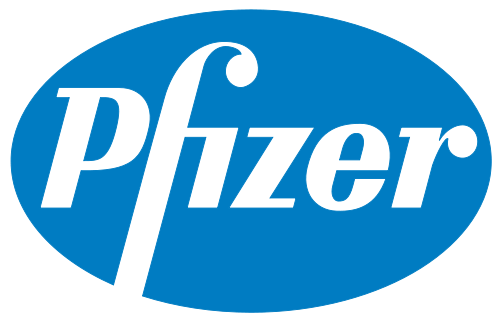Health and Healthcare
3 UBS Must-Own Large-Cap Pharmaceutical Stocks
Published:
Last Updated:
Anytime you see warning clouds hovering over the stock market like we may be seeing now, there are two really good options. Sell stocks and raise cash to take advantage of any large-scale selling, or shift assets to more defensive sectors. Utilities is a good sector to look at, but growth can be limited. Another outstanding sector is the large-cap pharmaceuticals, as they offer growth potential and outstanding dividends.
A new report from UBS highlights the three stocks that the firm likes best now. Not only do they all pay a solid dividend and have a good potential for growth, they all could help cushion a portfolio during a large correction.
AbbVie
This stock is a top global pharmaceutical stock to buy at UBS and across Wall Street. AbbVie Inc. (NYSE: ABBV) is a global, research-based biopharmaceutical company formed in 2013 following separation from Abbott Laboratories. The company’s mission is to use its expertise, dedicated people and unique approach to innovation to develop and market advanced therapies that address some of the world’s most complex and serious diseases. AbbVie employs more than 26,000 people worldwide and markets medicines in more than 170 countries
The company reported outstanding first-quarter earnings as Humira sales continued on a torrid pace. Larry Robbins from Glenview Capital said last month he believes that the stock is trading relatively “cheap” and that AbbVie’s pipeline is underappreciated as it will be difficult for competitors to make a generic version of its Humira, a drug to treat rheumatoid arthritis and Crohn disease.
ALSO READ: UBS Makes Changes to Dividend Ruler Stock List
With numerous clinical readouts for the stock over the rest of 2015, many on Wall Street think that over time the stock could have anywhere from $15 to $25 per share upside from current levels. The UBS team feels that investors may not fully appreciate the earnings power of the company, even with a biosimilar Humira, given the incredible pipeline, the Pharmacyclics deal and the ability to adjust the cost structures.
AbbVie investors are paid a very solid 3% dividend. The UBS price target for the stock $80. The Thomson/First Call consensus price target is lower at $74. Shares closed Tuesday at $68.56.
Merck
This stock has been hit hard since printing a high in late January. Although it has rallied back smartly, it still may be offering new investors a very good entry point. Merck & Co. Inc. (NYSE: MRK) remains a leading health care company on the focus lists of many of the top firms we cover. The company’s numerous prescription medicines, vaccines, biologic therapies and consumer care and animal health products are provided to customers in more than 140 countries.
Merck is the world’s fourth-biggest drugmaker by revenue, and it boosted its annual profit forecast after the company beat first-quarter earnings and sales estimates, fueled by higher demand for vaccines and diabetes treatments.
The UBS analysts feel that the recent gains given back after industry conferences was unwarranted, and they expect the stock to move higher as Keytruda ramps. This drug was approved last year and is for treatment of patients with advanced or unresectable melanoma who are no longer responding to other drugs.
Merck shareholders are paid a solid 3.13% dividend. The UBS price target is $68, and the consensus target is $65.47. Shares closed Tuesday at $57.99.
ALSO READ: Deutsche Bank Picks 3 Top Networking Stocks to Buy Now
Pfizer
This stock could be offering investors the best value at current trading levels. Pfizer Inc. (NYSE: PFE) rocked Wall Street this year, announcing a gigantic $15.2 billion purchase of Hospira. Hospira shareholders will be paid $90 a share. Hospira is a top provider of sterile injectable drugs — including those used for acute care and cancer treatment — infusion technologies and biosimilars, which are subsequent versions of drugs whose patents have expired.
In other recent solid news for Pfizer, the company’s drug Ibrance was approved for advanced breast cancer by U.S. regulators more than two months ahead of schedule, letting the drugmaker proceed with one of its most promising new blockbusters, a turn-of-events that Wall Street likes.
With a strong pipeline and the fact that Pfizer is the world’s largest drug manufacturer by sales value, many analysts feel the company can generate higher long-term revenues through the accelerated growth of its new drugs over the next five years, with Ibrance leading the way.
The UBS team thinks that the company continues with aggressive mergers and acquisitions activity, and then ultimately breaks the company up to unlock the overall immense value. They believe the break-up value for the stock is in the high $30s.
Pfizer investors are paid a solid 3.37% dividend. The UBS price target for the stock is set at $35. The consensus price target for the stock is posted higher at $38.18. Pfizer closed Tuesday at $33.73.
ALSO READ: 5 Big Upcoming FDA Decisions Expected in July
The key in owning top pharmaceuticals is twofold: outstanding total return through share price growth and dividends, and portfolio safety. In a big sell-off, pharmaceutical stocks are among the last to hit the sales tape.
Retirement planning doesn’t have to feel overwhelming. The key is finding professional guidance—and we’ve made it easier than ever for you to connect with the right financial advisor for your unique needs.
Here’s how it works:
1️ Answer a Few Simple Questions
Tell us a bit about your goals and preferences—it only takes a few minutes!
2️ Get Your Top Advisor Matches
This tool matches you with qualified advisors who specialize in helping people like you achieve financial success.
3️ Choose Your Best Fit
Review their profiles, schedule an introductory meeting, and select the advisor who feels right for you.
Why wait? Start building the retirement you’ve always dreamed of. Click here to get started today!
Thank you for reading! Have some feedback for us?
Contact the 24/7 Wall St. editorial team.